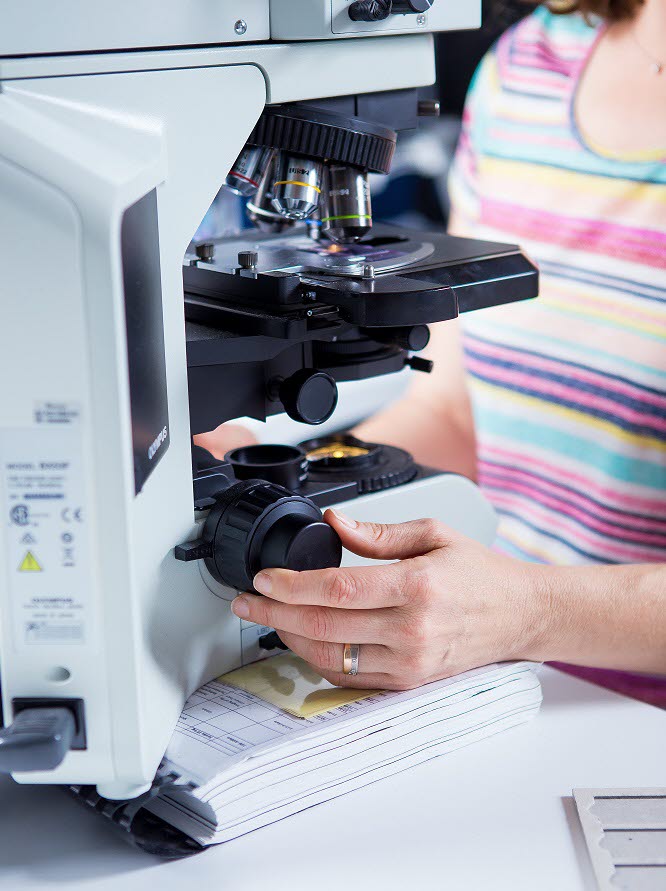What does a veterinary clinical pathologist do?

When veterinarians are investigating diseases and health conditions in pets, they will frequently undertake diagnostic tests to help pinpoint the cause of a health problem. These tests can involve collecting samples of blood, urine or faeces, as well as tissue samples collected by swabs or biopsies.
Depending on the type of sample collected, these clinical pathology samples can sometimes be analysed within the veterinary hospital, or they can be sent to a veterinary pathology laboratory for analysis. At the laboratory, the work of a veterinary clinical pathologist involves assessing the sample and interpreting the results from the various diagnostic tests which are undertaken.
Dr Leanne Twomey is a specialist veterinary clinical pathologist, and is the Clinical Director at Vetpath Laboratory Services in Perth, part of the national Specialist Veterinary Services (SVS) Pathology Network.
What makes the job so interesting?
“I enjoy helping veterinarians with their patients and the challenge of solving the puzzle. I also like the variety that different pathology cases provide, especially when we get some very interesting cases that make you say ‘Oh wow’ out loud when you first look down the microscope!”, explained Dr Twomey.
Once the sample from the pet has been analysed at the laboratory, and a report has been written up describing the findings, this report is sent back to your local veterinarian so that they can discuss the results with you and implement the appropriate next steps in the treatment of your pet’s health concern.
“Veterinary clinical pathologists work to piece together the clinical information submitted by your local veterinarian about your pet’s health condition, together with the diagnostic test results to identify what pathological or disease processes are occurring. We then prepare a written report to supply back to your veterinarian, and often spend time speaking with them about the results, and we can also provide advice on the best diagnostic tests to use in individual cases”, said Dr Twomey.
What are some other roles of a veterinary pathologists?
Veterinary clinical pathologists are also involved in working on research projects and developing professional development content for veterinarians, and in managing the quality control and quality assurance processes for the laboratories.
“Clinical pathologists are instrumental in the development of new diagnostic tests. We are trained in the development of new assays including validation, statistical analysis and creation of reference ranges”, said Dr Twomey.
“We work closely with other disciplines – such as biochemists and molecular scientists, to develop new tests, and we need to remain up to date with the literature to be able to identify new potential assays that can be included in the laboratory’s suite of tests. Molecular testing for both infectious agents and endogenous genetic abnormalities has been the most exciting development for clinical pathology in the last decade”.
How do you become a veterinary pathologist?
Similar to the human health field, veterinarians can work in a variety of different areas and specialities. Specialisation in veterinary clinical pathology requires further study and registration with a governing body such as the Australian and New Zealand College of Veterinary Scientists, the American College of Veterinary Pathologists, or the European College of Veterinary Pathologists.
When you take your pet in to see your local veterinarian, it’s good to know that veterinary specialists such as veterinary clinical pathologist Dr Leanne Twomey are working alongside your vet to help diagnose diseases in your pet. You can find out more information about different veterinary careers here.
